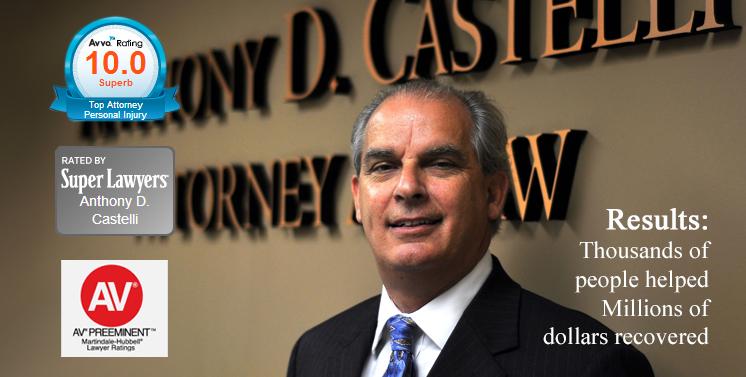Mr. Castelli has represented people who have suffered significant injuries in motorcycle accidents. It will cost you nothing to speak with him regarding your potential claim. Mr. Castelli works on a contingency basis, which means that a legal fee is paid if he successfully obtains a recovery for you, although there may be expenses.
Video right here
Helmet Laws
When a motorcycle is struck or falls during operation, the rider's head often hits the pavement. Motorcyclists die each year because of head injuries sustained in accidents. Because of this danger, motorcycle operators and passengers in many states are required by statute to wear safety helmets.
Mandatory Helmet Laws
Despite being an unpopular move among some motorcyclists, a number of states have enacted statutes requiring the use of protective equipment when riding a motorcycle. Some of these laws require that a motorcycle rider and/or his or her passenger wear equipment such as goggles or face shields, but most common (and most controversial) are those laws that require the wearing of a helmet.
The most vocal opposition to helmet laws has come by way of challenges to the legality of the laws themselves. Although in some cases, specific language in helmet statutes has been successfully attacked on constitutional grounds, the principle of requiring motorcyclists and their passengers to wear safety helmets has consistently been upheld as constitutional.
I believe that the choice to ride with or without a helmet should be left to the individual biker. In Ohio helmets are required if you are a novice or are under the age of eighteen.
Failure to Wear a Helmet & the Effect on Your Case
In a personal injury action brought by an injured motorcyclist, the opposing motorist may raise an issue with regard to the motorcyclist's own negligence. A party attempting to prove negligence on the part of a motorcyclist is bound by the same general elements of proof required to show negligence in any other case. First, the opposing party must show that the motorcyclist was under a duty of some kind to operate his/her motorcycle in a certain manner. Second, the opposing party must show that the motorcyclist breached this duty in some way, resulting in or contributing to his injury. Finally, the opposing party must show that the motorcyclist's breach of duty was at least one of the proximate causes of the accident. If all of these elements can be shown, a motorcyclist's recovery might be barred, or reduced, as a result of his/her contributory negligence in causing the accident.
In defining what constitutes contributory negligence, there is an important distinction between negligence contributing to the accident and negligence contributing to the injuries sustained. An act or omission that merely increases or adds to the extent of the injuries suffered by the motorcyclist is not such contributory negligence as will defeat a recovery.
In a number of states that have enacted mandatory helmet statutes, the laws either: (1) provide only for criminal penalties, or (2) do not state what effect a violation has on the determination of whether a motorcyclist was negligent. Thus, in these jurisdictions, and in those that do not have helmet laws, the effect of a motorcyclist's failure to wear a helmet on the determination of his negligence is unsettled. In such states, the failure to wear a helmet may be deemed to constitute negligence on the part of a motorcyclist, or may be relevant to the issue of brain injuries and damages, where it appears the failure to wear a helmet was a substantial factor in bringing about the motorcyclist's injuries.
In some states, the failure to wear a helmet as required by a statute is treated as any other possible act of negligence on the part of a motorcyclist, such as traveling at an excessive rate of speed or failing to use turn signals. When the failure to wear a helmet contributes to the motorcyclist's injuries, it is deemed a proximate cause of his injuries and it may serve to bar or limit his recovery. However, when the failure contributes in no way to the motorcyclist's injuries, it is not a proximate cause and it has no effect on the motorcyclist's ability to recover.
Not all jurisdictions have laws requiring motorcyclists to wear helmets, and some courts within such jurisdictions have found the fact that an injured rider was not wearing a helmet to be completely inadmissible in a personal injury suit. Thus, it is extremely important to discuss the facts of your case with an experienced motorcycle injury attorney, who will know the relevant helmet and evidentiary laws that would apply in your case.
Please contact the Law Office of Anthony D. Castelli using the form on the right side of the page or call (513) 621-2345 today to schedule your free motorcycle accident consultation. Mr. Castelli serves clients in Cincinnati and throughout Ohio.


